 Patrizia Agostinis (PA) received a Master in Biology from the University of Padua (Italy) and a PhD in BioMedical Science from the University of Leuven KU Leuven. After a short postdoctoral period, PA became an independent Group Leader of the Research Fundation (FWO) Flanders-Belgium. She is currently full Professor and head of the Cell Death Research & Therapy lab at the Department of Cellular and Molecular Medicine and a Group Leader of the Center for Cancer Biology of the VIB at KU Leuven. Her group made important contributions to the cancer biology and immunotherapy fields by unravelling molecular underpinnings and the robust in vivo anticancer vaccination properties of immunogenic cancer cell death and how cancer- or endothelial cell-intrinsic autophagy pathways impact tumor angiogenesis, metastasis and therapy responses. PA was elected President of the European Cell Death (ECDO) Society, honorary member of the European Academy of Tumor Immunology and received the 2019 Outstanding Achievement Award of the International Cell Death Society. The overarching goal of PA lab is to unveil how key cell-fate decision networks (i.e. cell death pathways, metabolic/quality control mechanisms) in cancer cells and stromal cells impact local and peripheral tumor microenvironment and responses to anticancer therapies. PA is also a strong advocate for Women in Science and mentor of several PhD and Postdoctoral researchers, who continued their independent carrier as scientists or specialists.
Patrizia Agostinis (PA) received a Master in Biology from the University of Padua (Italy) and a PhD in BioMedical Science from the University of Leuven KU Leuven. After a short postdoctoral period, PA became an independent Group Leader of the Research Fundation (FWO) Flanders-Belgium. She is currently full Professor and head of the Cell Death Research & Therapy lab at the Department of Cellular and Molecular Medicine and a Group Leader of the Center for Cancer Biology of the VIB at KU Leuven. Her group made important contributions to the cancer biology and immunotherapy fields by unravelling molecular underpinnings and the robust in vivo anticancer vaccination properties of immunogenic cancer cell death and how cancer- or endothelial cell-intrinsic autophagy pathways impact tumor angiogenesis, metastasis and therapy responses. PA was elected President of the European Cell Death (ECDO) Society, honorary member of the European Academy of Tumor Immunology and received the 2019 Outstanding Achievement Award of the International Cell Death Society. The overarching goal of PA lab is to unveil how key cell-fate decision networks (i.e. cell death pathways, metabolic/quality control mechanisms) in cancer cells and stromal cells impact local and peripheral tumor microenvironment and responses to anticancer therapies. PA is also a strong advocate for Women in Science and mentor of several PhD and Postdoctoral researchers, who continued their independent carrier as scientists or specialists.
 Patrizia Agostinis (PA) received a Master in Biology from the University of Padua (Italy) and a PhD in BioMedical Science from the University of Leuven KU Leuven. After a short postdoctoral period, PA became an independent Group Leader of the Research Fundation (FWO) Flanders-Belgium. She is currently full Professor and head of the Cell Death Research & Therapy lab at the Department of Cellular and Molecular Medicine and a Group Leader of the Center for Cancer Biology of the VIB at KU Leuven. Her group made important contributions to the cancer biology and immunotherapy fields by unravelling molecular underpinnings and the robust in vivo anticancer vaccination properties of immunogenic cancer cell death and how cancer- or endothelial cell-intrinsic autophagy pathways impact tumor angiogenesis, metastasis and therapy responses. PA was elected President of the European Cell Death (ECDO) Society, honorary member of the European Academy of Tumor Immunology and received the 2019 Outstanding Achievement Award of the International Cell Death Society. The overarching goal of PA lab is to unveil how key cell-fate decision networks (i.e. cell death pathways, metabolic/quality control mechanisms) in cancer cells and stromal cells impact local and peripheral tumor microenvironment and responses to anticancer therapies. PA is also a strong advocate for Women in Science and mentor of several PhD and Postdoctoral researchers, who continued their independent carrier as scientists or specialists.
Patrizia Agostinis (PA) received a Master in Biology from the University of Padua (Italy) and a PhD in BioMedical Science from the University of Leuven KU Leuven. After a short postdoctoral period, PA became an independent Group Leader of the Research Fundation (FWO) Flanders-Belgium. She is currently full Professor and head of the Cell Death Research & Therapy lab at the Department of Cellular and Molecular Medicine and a Group Leader of the Center for Cancer Biology of the VIB at KU Leuven. Her group made important contributions to the cancer biology and immunotherapy fields by unravelling molecular underpinnings and the robust in vivo anticancer vaccination properties of immunogenic cancer cell death and how cancer- or endothelial cell-intrinsic autophagy pathways impact tumor angiogenesis, metastasis and therapy responses. PA was elected President of the European Cell Death (ECDO) Society, honorary member of the European Academy of Tumor Immunology and received the 2019 Outstanding Achievement Award of the International Cell Death Society. The overarching goal of PA lab is to unveil how key cell-fate decision networks (i.e. cell death pathways, metabolic/quality control mechanisms) in cancer cells and stromal cells impact local and peripheral tumor microenvironment and responses to anticancer therapies. PA is also a strong advocate for Women in Science and mentor of several PhD and Postdoctoral researchers, who continued their independent carrier as scientists or specialists.
 Geert Bultynck (PhD, KU Leuven, 2001) heads the Laboratory of Molecular & Cellular Signaling, KU Leuven, Belgium. Since 2008 as a PI, he has been studying the role Ca2+ signaling in health, disease & therapy with a focus on the role of the Bcl-2-protein family. He aims to decipher the non-canonical functions of the anti-apoptotic Bcl-2 family underlying direct modulation of intracellular Ca2+-transport systems, particularly IP3 receptors and ryanodine receptors and thereby contributing to cell death resistance. The team wants to unravel the molecular determinants underlying IP3R/Bcl-2 complexes and by doing so develop novel therapeutic cell death strategies by targeting & disrupting these complexes in cancer cells. The team also exploits the properties of Bcl-2 proteins in suppressing Ca2+ signaling in diseases associated with excessive Ca2+-release events such as neurodegeneration and rare genetic diseases.
Geert Bultynck (PhD, KU Leuven, 2001) heads the Laboratory of Molecular & Cellular Signaling, KU Leuven, Belgium. Since 2008 as a PI, he has been studying the role Ca2+ signaling in health, disease & therapy with a focus on the role of the Bcl-2-protein family. He aims to decipher the non-canonical functions of the anti-apoptotic Bcl-2 family underlying direct modulation of intracellular Ca2+-transport systems, particularly IP3 receptors and ryanodine receptors and thereby contributing to cell death resistance. The team wants to unravel the molecular determinants underlying IP3R/Bcl-2 complexes and by doing so develop novel therapeutic cell death strategies by targeting & disrupting these complexes in cancer cells. The team also exploits the properties of Bcl-2 proteins in suppressing Ca2+ signaling in diseases associated with excessive Ca2+-release events such as neurodegeneration and rare genetic diseases.
Geert Bultynck currently serves as Executive Editor of BBA – Molecular Cell Research journal and is the Secretary-General of the European Calcium Society (ECS), a community of more than 200 researchers worldwide.
 Geert Bultynck (PhD, KU Leuven, 2001) heads the Laboratory of Molecular & Cellular Signaling, KU Leuven, Belgium. Since 2008 as a PI, he has been studying the role Ca2+ signaling in health, disease & therapy with a focus on the role of the Bcl-2-protein family. He aims to decipher the non-canonical functions of the anti-apoptotic Bcl-2 family underlying direct modulation of intracellular Ca2+-transport systems, particularly IP3 receptors and ryanodine receptors and thereby contributing to cell death resistance. The team wants to unravel the molecular determinants underlying IP3R/Bcl-2 complexes and by doing so develop novel therapeutic cell death strategies by targeting & disrupting these complexes in cancer cells. The team also exploits the properties of Bcl-2 proteins in suppressing Ca2+ signaling in diseases associated with excessive Ca2+-release events such as neurodegeneration and rare genetic diseases.
Geert Bultynck (PhD, KU Leuven, 2001) heads the Laboratory of Molecular & Cellular Signaling, KU Leuven, Belgium. Since 2008 as a PI, he has been studying the role Ca2+ signaling in health, disease & therapy with a focus on the role of the Bcl-2-protein family. He aims to decipher the non-canonical functions of the anti-apoptotic Bcl-2 family underlying direct modulation of intracellular Ca2+-transport systems, particularly IP3 receptors and ryanodine receptors and thereby contributing to cell death resistance. The team wants to unravel the molecular determinants underlying IP3R/Bcl-2 complexes and by doing so develop novel therapeutic cell death strategies by targeting & disrupting these complexes in cancer cells. The team also exploits the properties of Bcl-2 proteins in suppressing Ca2+ signaling in diseases associated with excessive Ca2+-release events such as neurodegeneration and rare genetic diseases.
Geert Bultynck currently serves as Executive Editor of BBA – Molecular Cell Research journal and is the Secretary-General of the European Calcium Society (ECS), a community of more than 200 researchers worldwide.
 Amado obtained his Biology and Master degree at the Univeristy Pompeu Fabra (UPF) in Barcelona. In 2010, he joined the Ph.D. program in the department of Department of Experimental and Health Sciences also in the UPF in Barcelona. He did his Ph.D. at the Molecular Physiology and Channelopathies group leaded by Miguel Angel Valverde and worked on T cell activation and intracellular calcium homeostasis. After, he did a postdoc in the lab of prof. Claudio Hetz, granted by the FONDECYT program where he studied protein folding and ER stress coupled to mitochondrial biology, focusing on ER and mitochondria contact sites. During these periods he was able to work in the NYU, or KU Leuven, profiting from career awards like EMBO short term fellowship or the Boehringer Ingelheim travel grant. He came back to Europe on 2019, where he currently works as a Junior lecturer in the University of Geneva in the laboratory of Prof. Nicolas Demuarex. He intends to dedicate his scientific career to the study of ER proteostasis, interorganellar ionic and metabolic communication and how this impacts cellular adaptation to stress environments.
Amado obtained his Biology and Master degree at the Univeristy Pompeu Fabra (UPF) in Barcelona. In 2010, he joined the Ph.D. program in the department of Department of Experimental and Health Sciences also in the UPF in Barcelona. He did his Ph.D. at the Molecular Physiology and Channelopathies group leaded by Miguel Angel Valverde and worked on T cell activation and intracellular calcium homeostasis. After, he did a postdoc in the lab of prof. Claudio Hetz, granted by the FONDECYT program where he studied protein folding and ER stress coupled to mitochondrial biology, focusing on ER and mitochondria contact sites. During these periods he was able to work in the NYU, or KU Leuven, profiting from career awards like EMBO short term fellowship or the Boehringer Ingelheim travel grant. He came back to Europe on 2019, where he currently works as a Junior lecturer in the University of Geneva in the laboratory of Prof. Nicolas Demuarex. He intends to dedicate his scientific career to the study of ER proteostasis, interorganellar ionic and metabolic communication and how this impacts cellular adaptation to stress environments.
 Amado obtained his Biology and Master degree at the Univeristy Pompeu Fabra (UPF) in Barcelona. In 2010, he joined the Ph.D. program in the department of Department of Experimental and Health Sciences also in the UPF in Barcelona. He did his Ph.D. at the Molecular Physiology and Channelopathies group leaded by Miguel Angel Valverde and worked on T cell activation and intracellular calcium homeostasis. After, he did a postdoc in the lab of prof. Claudio Hetz, granted by the FONDECYT program where he studied protein folding and ER stress coupled to mitochondrial biology, focusing on ER and mitochondria contact sites. During these periods he was able to work in the NYU, or KU Leuven, profiting from career awards like EMBO short term fellowship or the Boehringer Ingelheim travel grant. He came back to Europe on 2019, where he currently works as a Junior lecturer in the University of Geneva in the laboratory of Prof. Nicolas Demuarex. He intends to dedicate his scientific career to the study of ER proteostasis, interorganellar ionic and metabolic communication and how this impacts cellular adaptation to stress environments.
Amado obtained his Biology and Master degree at the Univeristy Pompeu Fabra (UPF) in Barcelona. In 2010, he joined the Ph.D. program in the department of Department of Experimental and Health Sciences also in the UPF in Barcelona. He did his Ph.D. at the Molecular Physiology and Channelopathies group leaded by Miguel Angel Valverde and worked on T cell activation and intracellular calcium homeostasis. After, he did a postdoc in the lab of prof. Claudio Hetz, granted by the FONDECYT program where he studied protein folding and ER stress coupled to mitochondrial biology, focusing on ER and mitochondria contact sites. During these periods he was able to work in the NYU, or KU Leuven, profiting from career awards like EMBO short term fellowship or the Boehringer Ingelheim travel grant. He came back to Europe on 2019, where he currently works as a Junior lecturer in the University of Geneva in the laboratory of Prof. Nicolas Demuarex. He intends to dedicate his scientific career to the study of ER proteostasis, interorganellar ionic and metabolic communication and how this impacts cellular adaptation to stress environments.
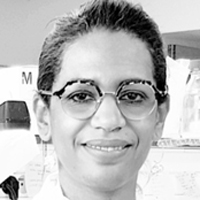 Dr. Chami is a Senior Researcher at the University Côte d’Azur, at the Institute of Molecular and Cellular Pharmacology. She received her Doctoral degree on Molecular and Cellular Biology from the University of Paris XI. She worked at the University of Ferrara, Italy, as a post-doctoral fellow, served as a Junior researcher in Paris V University, France, and as a team leader at the Italian Institute of Italy. Dr. Chami Mounia is expert in the field of subcellular calcium signaling and intracellular organelles dysfunctions namely the endoplasmic reticulum (ER) and mitochondria (http://cvscience.aviesan.fr/cv/185/mounia-chami). In the field of Alzheimer’s disease (AD), she demonstrated the impact of ER calcium homeostasis in AD pathogenesis through the control of Amyloid precursor protein processing, the development of cognitive deficits and synaptic plasticity dysfunction, and also neuroinflammation. These studies reveal the potential therapeutic benefit in targeting ER Calcium release to alleviate or treat AD. Dr. Chami also reported the localization and the metabolism of APP in Mitochondria Associated Membranes thus interfering with lipid metabolism and mitochondria dyfunctions in AD. Recent studies by Dr. Chami highlight novel mechanisms linking mitochondrial dysfunction and mitophagy failure to AD development.
Dr. Chami is a Senior Researcher at the University Côte d’Azur, at the Institute of Molecular and Cellular Pharmacology. She received her Doctoral degree on Molecular and Cellular Biology from the University of Paris XI. She worked at the University of Ferrara, Italy, as a post-doctoral fellow, served as a Junior researcher in Paris V University, France, and as a team leader at the Italian Institute of Italy. Dr. Chami Mounia is expert in the field of subcellular calcium signaling and intracellular organelles dysfunctions namely the endoplasmic reticulum (ER) and mitochondria (http://cvscience.aviesan.fr/cv/185/mounia-chami). In the field of Alzheimer’s disease (AD), she demonstrated the impact of ER calcium homeostasis in AD pathogenesis through the control of Amyloid precursor protein processing, the development of cognitive deficits and synaptic plasticity dysfunction, and also neuroinflammation. These studies reveal the potential therapeutic benefit in targeting ER Calcium release to alleviate or treat AD. Dr. Chami also reported the localization and the metabolism of APP in Mitochondria Associated Membranes thus interfering with lipid metabolism and mitochondria dyfunctions in AD. Recent studies by Dr. Chami highlight novel mechanisms linking mitochondrial dysfunction and mitophagy failure to AD development.
 Dr. Chami is a Senior Researcher at the University Côte d’Azur, at the Institute of Molecular and Cellular Pharmacology. She received her Doctoral degree on Molecular and Cellular Biology from the University of Paris XI. She worked at the University of Ferrara, Italy, as a post-doctoral fellow, served as a Junior researcher in Paris V University, France, and as a team leader at the Italian Institute of Italy. Dr. Chami Mounia is expert in the field of subcellular calcium signaling and intracellular organelles dysfunctions namely the endoplasmic reticulum (ER) and mitochondria (http://cvscience.aviesan.fr/cv/185/mounia-chami). In the field of Alzheimer’s disease (AD), she demonstrated the impact of ER calcium homeostasis in AD pathogenesis through the control of Amyloid precursor protein processing, the development of cognitive deficits and synaptic plasticity dysfunction, and also neuroinflammation. These studies reveal the potential therapeutic benefit in targeting ER Calcium release to alleviate or treat AD. Dr. Chami also reported the localization and the metabolism of APP in Mitochondria Associated Membranes thus interfering with lipid metabolism and mitochondria dyfunctions in AD. Recent studies by Dr. Chami highlight novel mechanisms linking mitochondrial dysfunction and mitophagy failure to AD development.
Dr. Chami is a Senior Researcher at the University Côte d’Azur, at the Institute of Molecular and Cellular Pharmacology. She received her Doctoral degree on Molecular and Cellular Biology from the University of Paris XI. She worked at the University of Ferrara, Italy, as a post-doctoral fellow, served as a Junior researcher in Paris V University, France, and as a team leader at the Italian Institute of Italy. Dr. Chami Mounia is expert in the field of subcellular calcium signaling and intracellular organelles dysfunctions namely the endoplasmic reticulum (ER) and mitochondria (http://cvscience.aviesan.fr/cv/185/mounia-chami). In the field of Alzheimer’s disease (AD), she demonstrated the impact of ER calcium homeostasis in AD pathogenesis through the control of Amyloid precursor protein processing, the development of cognitive deficits and synaptic plasticity dysfunction, and also neuroinflammation. These studies reveal the potential therapeutic benefit in targeting ER Calcium release to alleviate or treat AD. Dr. Chami also reported the localization and the metabolism of APP in Mitochondria Associated Membranes thus interfering with lipid metabolism and mitochondria dyfunctions in AD. Recent studies by Dr. Chami highlight novel mechanisms linking mitochondrial dysfunction and mitophagy failure to AD development.
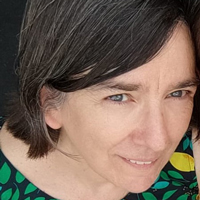 Araceli del Arco obtained a Bachelor of Biology (1988) and a Ph.D. in Sciences (1993) from the Autonomous University of Madrid (UAM), Spain, in the Marta Izquierdo’ group one of the promoters of Molecular Biology in Spain. In 1994 she joined the group of Jorgina Satrústegui, a pioneering scientist in the study of calcium regulation of mitochondrial metabolism. In 1997 she incorporated as Assistant Professor to the Universidad de Castilla-La Mancha (Toledo, Spain) where obtained a permanent position in 2003. However, her scientific career has continued to develop in close collaboration with J. Satrustegui in the UAM.
In the late 1990s, their research focused on Ca2+ signaling systems in mitochondria led to the discovery of the Ca2+ regulated mitochondrial carriers, CaMCs, metabolite transporters of the inner mitochondrial membrane with Ca2+-binding domains facing the intermembrane space. In contrast with the well-known system of Ca2+-signaling in mitochondria, which depends on Ca2+ entry to the matrix along the mitochondrial calcium uniporter (MCU), CaMCs activation by Ca2+ is independent of matrix Ca2+. This group first identified the mitochondrial transporters of aspartate/glutamate (AGCs) showing that they were the Ca2+-regulated component of the malate-aspartate NADH shuttle. Later, they reported the existence of the short CaMCs, or SCaMCs, which were shown to correspond to the mitochondrial transporters of ATP-Mg2+/Pi or ADP/Pi. Since then, her efforts have focused on understanding how cytosolic calcium signals, through CaMCs activation, modulate mitochondrial function.
Araceli del Arco obtained a Bachelor of Biology (1988) and a Ph.D. in Sciences (1993) from the Autonomous University of Madrid (UAM), Spain, in the Marta Izquierdo’ group one of the promoters of Molecular Biology in Spain. In 1994 she joined the group of Jorgina Satrústegui, a pioneering scientist in the study of calcium regulation of mitochondrial metabolism. In 1997 she incorporated as Assistant Professor to the Universidad de Castilla-La Mancha (Toledo, Spain) where obtained a permanent position in 2003. However, her scientific career has continued to develop in close collaboration with J. Satrustegui in the UAM.
In the late 1990s, their research focused on Ca2+ signaling systems in mitochondria led to the discovery of the Ca2+ regulated mitochondrial carriers, CaMCs, metabolite transporters of the inner mitochondrial membrane with Ca2+-binding domains facing the intermembrane space. In contrast with the well-known system of Ca2+-signaling in mitochondria, which depends on Ca2+ entry to the matrix along the mitochondrial calcium uniporter (MCU), CaMCs activation by Ca2+ is independent of matrix Ca2+. This group first identified the mitochondrial transporters of aspartate/glutamate (AGCs) showing that they were the Ca2+-regulated component of the malate-aspartate NADH shuttle. Later, they reported the existence of the short CaMCs, or SCaMCs, which were shown to correspond to the mitochondrial transporters of ATP-Mg2+/Pi or ADP/Pi. Since then, her efforts have focused on understanding how cytosolic calcium signals, through CaMCs activation, modulate mitochondrial function.
 Araceli del Arco obtained a Bachelor of Biology (1988) and a Ph.D. in Sciences (1993) from the Autonomous University of Madrid (UAM), Spain, in the Marta Izquierdo’ group one of the promoters of Molecular Biology in Spain. In 1994 she joined the group of Jorgina Satrústegui, a pioneering scientist in the study of calcium regulation of mitochondrial metabolism. In 1997 she incorporated as Assistant Professor to the Universidad de Castilla-La Mancha (Toledo, Spain) where obtained a permanent position in 2003. However, her scientific career has continued to develop in close collaboration with J. Satrustegui in the UAM.
In the late 1990s, their research focused on Ca2+ signaling systems in mitochondria led to the discovery of the Ca2+ regulated mitochondrial carriers, CaMCs, metabolite transporters of the inner mitochondrial membrane with Ca2+-binding domains facing the intermembrane space. In contrast with the well-known system of Ca2+-signaling in mitochondria, which depends on Ca2+ entry to the matrix along the mitochondrial calcium uniporter (MCU), CaMCs activation by Ca2+ is independent of matrix Ca2+. This group first identified the mitochondrial transporters of aspartate/glutamate (AGCs) showing that they were the Ca2+-regulated component of the malate-aspartate NADH shuttle. Later, they reported the existence of the short CaMCs, or SCaMCs, which were shown to correspond to the mitochondrial transporters of ATP-Mg2+/Pi or ADP/Pi. Since then, her efforts have focused on understanding how cytosolic calcium signals, through CaMCs activation, modulate mitochondrial function.
Araceli del Arco obtained a Bachelor of Biology (1988) and a Ph.D. in Sciences (1993) from the Autonomous University of Madrid (UAM), Spain, in the Marta Izquierdo’ group one of the promoters of Molecular Biology in Spain. In 1994 she joined the group of Jorgina Satrústegui, a pioneering scientist in the study of calcium regulation of mitochondrial metabolism. In 1997 she incorporated as Assistant Professor to the Universidad de Castilla-La Mancha (Toledo, Spain) where obtained a permanent position in 2003. However, her scientific career has continued to develop in close collaboration with J. Satrustegui in the UAM.
In the late 1990s, their research focused on Ca2+ signaling systems in mitochondria led to the discovery of the Ca2+ regulated mitochondrial carriers, CaMCs, metabolite transporters of the inner mitochondrial membrane with Ca2+-binding domains facing the intermembrane space. In contrast with the well-known system of Ca2+-signaling in mitochondria, which depends on Ca2+ entry to the matrix along the mitochondrial calcium uniporter (MCU), CaMCs activation by Ca2+ is independent of matrix Ca2+. This group first identified the mitochondrial transporters of aspartate/glutamate (AGCs) showing that they were the Ca2+-regulated component of the malate-aspartate NADH shuttle. Later, they reported the existence of the short CaMCs, or SCaMCs, which were shown to correspond to the mitochondrial transporters of ATP-Mg2+/Pi or ADP/Pi. Since then, her efforts have focused on understanding how cytosolic calcium signals, through CaMCs activation, modulate mitochondrial function.
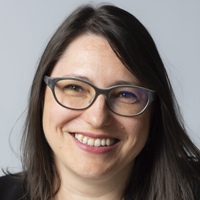 Amalia Dolga is Associate Professor on Regenerative Neuropharmacology at the University of Groningen, the Netherlands. Her laboratory aims at identifying the molecular mechanisms responsible for cell death (particularly ferroptosis) and at elucidating their involvement in human brain diseases. The focus of her research is on mitochondrial dysfunction, calcium and inflammatory pathways. To unravel the complex web of factors that contribute to these pathways, her group is using human induced pluripotent stem cell-differentiated brain cells, including neurons/microglia and brain organoids. Furthermore, her team is employing organ-on-a-chip technology to study how brain cells communicate with each other. Through these innovative approaches, her group aims to gain valuable insights into the underlying mechanisms of brain diseases and propose improved treatments.
Amalia Dolga is Associate Professor on Regenerative Neuropharmacology at the University of Groningen, the Netherlands. Her laboratory aims at identifying the molecular mechanisms responsible for cell death (particularly ferroptosis) and at elucidating their involvement in human brain diseases. The focus of her research is on mitochondrial dysfunction, calcium and inflammatory pathways. To unravel the complex web of factors that contribute to these pathways, her group is using human induced pluripotent stem cell-differentiated brain cells, including neurons/microglia and brain organoids. Furthermore, her team is employing organ-on-a-chip technology to study how brain cells communicate with each other. Through these innovative approaches, her group aims to gain valuable insights into the underlying mechanisms of brain diseases and propose improved treatments.
 Amalia Dolga is Associate Professor on Regenerative Neuropharmacology at the University of Groningen, the Netherlands. Her laboratory aims at identifying the molecular mechanisms responsible for cell death (particularly ferroptosis) and at elucidating their involvement in human brain diseases. The focus of her research is on mitochondrial dysfunction, calcium and inflammatory pathways. To unravel the complex web of factors that contribute to these pathways, her group is using human induced pluripotent stem cell-differentiated brain cells, including neurons/microglia and brain organoids. Furthermore, her team is employing organ-on-a-chip technology to study how brain cells communicate with each other. Through these innovative approaches, her group aims to gain valuable insights into the underlying mechanisms of brain diseases and propose improved treatments.
Amalia Dolga is Associate Professor on Regenerative Neuropharmacology at the University of Groningen, the Netherlands. Her laboratory aims at identifying the molecular mechanisms responsible for cell death (particularly ferroptosis) and at elucidating their involvement in human brain diseases. The focus of her research is on mitochondrial dysfunction, calcium and inflammatory pathways. To unravel the complex web of factors that contribute to these pathways, her group is using human induced pluripotent stem cell-differentiated brain cells, including neurons/microglia and brain organoids. Furthermore, her team is employing organ-on-a-chip technology to study how brain cells communicate with each other. Through these innovative approaches, her group aims to gain valuable insights into the underlying mechanisms of brain diseases and propose improved treatments.
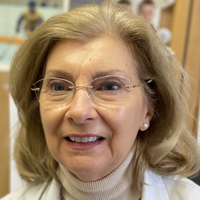 I have worked on calcium signaling since my Ph.D., in which I studied the control
of the Ca2+ permeability of the plasma membrane by the level of filling of intracellular
Ca2+ stores (1991), Valladolid, Spain. I then did a postdoc in Padova (Italy) (Dpto
Scienze Biomediche, Universitá di Padova, with Profs. Pozzan and Rizzuto) on the
development of a new method to measure the [Ca2+] in the endoplasmic reticulum using
the recombinant photoprotein aequorin targeted to the ER (1993-95). I then returned to
Valladolid, Spain and together with Professor Javier Alvarez we continued working on
subcellular calcium homeostasis in the IBGM (Instituto de Biomedicina y Genética
Molecular, Valladolid, Spain). I took a faculty position in Biochemistry and Molecular
Biology, University of Valladolid, becoming full Professor in 2018. In 2012 I spent a
sabbatical stay at the Laboratory of Molecular Biology/Medical Research Council,
Cambridge, UK, with Prof. W.R.Schafer, learning the issues surrounding calcium
imaging in live C. elegans pharynx, both cytosolic and mitochondrial. Then I returned to
my lab where our efforts are now focused in the relationship between ageing and calcium
homeostasis in C. elegans, as well as in the diseases associated to ageing, in particular
neurodegenerative diseases such as Alzheimer, Parkinson and Huntington, using
models of these diseases in C. elegans.
I have worked on calcium signaling since my Ph.D., in which I studied the control
of the Ca2+ permeability of the plasma membrane by the level of filling of intracellular
Ca2+ stores (1991), Valladolid, Spain. I then did a postdoc in Padova (Italy) (Dpto
Scienze Biomediche, Universitá di Padova, with Profs. Pozzan and Rizzuto) on the
development of a new method to measure the [Ca2+] in the endoplasmic reticulum using
the recombinant photoprotein aequorin targeted to the ER (1993-95). I then returned to
Valladolid, Spain and together with Professor Javier Alvarez we continued working on
subcellular calcium homeostasis in the IBGM (Instituto de Biomedicina y Genética
Molecular, Valladolid, Spain). I took a faculty position in Biochemistry and Molecular
Biology, University of Valladolid, becoming full Professor in 2018. In 2012 I spent a
sabbatical stay at the Laboratory of Molecular Biology/Medical Research Council,
Cambridge, UK, with Prof. W.R.Schafer, learning the issues surrounding calcium
imaging in live C. elegans pharynx, both cytosolic and mitochondrial. Then I returned to
my lab where our efforts are now focused in the relationship between ageing and calcium
homeostasis in C. elegans, as well as in the diseases associated to ageing, in particular
neurodegenerative diseases such as Alzheimer, Parkinson and Huntington, using
models of these diseases in C. elegans.
 I have worked on calcium signaling since my Ph.D., in which I studied the control
of the Ca2+ permeability of the plasma membrane by the level of filling of intracellular
Ca2+ stores (1991), Valladolid, Spain. I then did a postdoc in Padova (Italy) (Dpto
Scienze Biomediche, Universitá di Padova, with Profs. Pozzan and Rizzuto) on the
development of a new method to measure the [Ca2+] in the endoplasmic reticulum using
the recombinant photoprotein aequorin targeted to the ER (1993-95). I then returned to
Valladolid, Spain and together with Professor Javier Alvarez we continued working on
subcellular calcium homeostasis in the IBGM (Instituto de Biomedicina y Genética
Molecular, Valladolid, Spain). I took a faculty position in Biochemistry and Molecular
Biology, University of Valladolid, becoming full Professor in 2018. In 2012 I spent a
sabbatical stay at the Laboratory of Molecular Biology/Medical Research Council,
Cambridge, UK, with Prof. W.R.Schafer, learning the issues surrounding calcium
imaging in live C. elegans pharynx, both cytosolic and mitochondrial. Then I returned to
my lab where our efforts are now focused in the relationship between ageing and calcium
homeostasis in C. elegans, as well as in the diseases associated to ageing, in particular
neurodegenerative diseases such as Alzheimer, Parkinson and Huntington, using
models of these diseases in C. elegans.
I have worked on calcium signaling since my Ph.D., in which I studied the control
of the Ca2+ permeability of the plasma membrane by the level of filling of intracellular
Ca2+ stores (1991), Valladolid, Spain. I then did a postdoc in Padova (Italy) (Dpto
Scienze Biomediche, Universitá di Padova, with Profs. Pozzan and Rizzuto) on the
development of a new method to measure the [Ca2+] in the endoplasmic reticulum using
the recombinant photoprotein aequorin targeted to the ER (1993-95). I then returned to
Valladolid, Spain and together with Professor Javier Alvarez we continued working on
subcellular calcium homeostasis in the IBGM (Instituto de Biomedicina y Genética
Molecular, Valladolid, Spain). I took a faculty position in Biochemistry and Molecular
Biology, University of Valladolid, becoming full Professor in 2018. In 2012 I spent a
sabbatical stay at the Laboratory of Molecular Biology/Medical Research Council,
Cambridge, UK, with Prof. W.R.Schafer, learning the issues surrounding calcium
imaging in live C. elegans pharynx, both cytosolic and mitochondrial. Then I returned to
my lab where our efforts are now focused in the relationship between ageing and calcium
homeostasis in C. elegans, as well as in the diseases associated to ageing, in particular
neurodegenerative diseases such as Alzheimer, Parkinson and Huntington, using
models of these diseases in C. elegans.
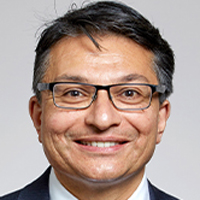 Anant Parekh was a medical student at Oxford University. He stayed on for his graduate studies and received a D.Phil. from the Department of Pharmacology on E-C coupling in smooth msucle. He completed a postdoctoral fellowship at the Max Planck Institute for Biophysical Chemistry in Goettingen, Germany with Nobel Laureate Erwin Neher, Ph.D., and Reinhold Penner, M.D., Ph.D. He then joined the Department of Physiology, Anatomy and Genetics at the University of Oxford and became Professor of Physiology and Director of the Centre of Integrative Physiology and Fellow of Merton College. He is now Chair of the Department of Signal Transduction at the NIH, USA. Parekh has received several awards for his research, including the Wellcome Prize in Physiology and the GL Brown Prize in Physiology. He was elected a member of Academia Europaea in 2002, the U.K. Academy of Medical Sciences in 2012 and became a Fellow of the Royal Society in 2019. He was awarded the Annual Prize from the UK Physiological Society in 2023.
His group studies intracellular calcium signalling, particularly the function of store-operated calcium channels. A major focus is on how aberrant calcium signals contribute to disease in humans, particularly allergies and asthma.
Anant Parekh was a medical student at Oxford University. He stayed on for his graduate studies and received a D.Phil. from the Department of Pharmacology on E-C coupling in smooth msucle. He completed a postdoctoral fellowship at the Max Planck Institute for Biophysical Chemistry in Goettingen, Germany with Nobel Laureate Erwin Neher, Ph.D., and Reinhold Penner, M.D., Ph.D. He then joined the Department of Physiology, Anatomy and Genetics at the University of Oxford and became Professor of Physiology and Director of the Centre of Integrative Physiology and Fellow of Merton College. He is now Chair of the Department of Signal Transduction at the NIH, USA. Parekh has received several awards for his research, including the Wellcome Prize in Physiology and the GL Brown Prize in Physiology. He was elected a member of Academia Europaea in 2002, the U.K. Academy of Medical Sciences in 2012 and became a Fellow of the Royal Society in 2019. He was awarded the Annual Prize from the UK Physiological Society in 2023.
His group studies intracellular calcium signalling, particularly the function of store-operated calcium channels. A major focus is on how aberrant calcium signals contribute to disease in humans, particularly allergies and asthma.
 Anant Parekh was a medical student at Oxford University. He stayed on for his graduate studies and received a D.Phil. from the Department of Pharmacology on E-C coupling in smooth msucle. He completed a postdoctoral fellowship at the Max Planck Institute for Biophysical Chemistry in Goettingen, Germany with Nobel Laureate Erwin Neher, Ph.D., and Reinhold Penner, M.D., Ph.D. He then joined the Department of Physiology, Anatomy and Genetics at the University of Oxford and became Professor of Physiology and Director of the Centre of Integrative Physiology and Fellow of Merton College. He is now Chair of the Department of Signal Transduction at the NIH, USA. Parekh has received several awards for his research, including the Wellcome Prize in Physiology and the GL Brown Prize in Physiology. He was elected a member of Academia Europaea in 2002, the U.K. Academy of Medical Sciences in 2012 and became a Fellow of the Royal Society in 2019. He was awarded the Annual Prize from the UK Physiological Society in 2023.
His group studies intracellular calcium signalling, particularly the function of store-operated calcium channels. A major focus is on how aberrant calcium signals contribute to disease in humans, particularly allergies and asthma.
Anant Parekh was a medical student at Oxford University. He stayed on for his graduate studies and received a D.Phil. from the Department of Pharmacology on E-C coupling in smooth msucle. He completed a postdoctoral fellowship at the Max Planck Institute for Biophysical Chemistry in Goettingen, Germany with Nobel Laureate Erwin Neher, Ph.D., and Reinhold Penner, M.D., Ph.D. He then joined the Department of Physiology, Anatomy and Genetics at the University of Oxford and became Professor of Physiology and Director of the Centre of Integrative Physiology and Fellow of Merton College. He is now Chair of the Department of Signal Transduction at the NIH, USA. Parekh has received several awards for his research, including the Wellcome Prize in Physiology and the GL Brown Prize in Physiology. He was elected a member of Academia Europaea in 2002, the U.K. Academy of Medical Sciences in 2012 and became a Fellow of the Royal Society in 2019. He was awarded the Annual Prize from the UK Physiological Society in 2023.
His group studies intracellular calcium signalling, particularly the function of store-operated calcium channels. A major focus is on how aberrant calcium signals contribute to disease in humans, particularly allergies and asthma.
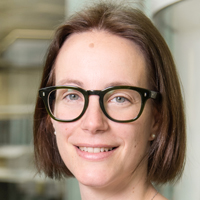 Maria focused all her scientific career on mitochondrial calcium signaling. She did her PhD in Padova with Rosario Rizzuto where she characterized how MICUs family regulates mitochondrial calcium uniporter activity. She moved then for her postdoc to Cologne in the lab of Thomas Langer where she discovered TMBIM5, a new channel that extrudes Ca2+ from mitochondria.
Maria focused all her scientific career on mitochondrial calcium signaling. She did her PhD in Padova with Rosario Rizzuto where she characterized how MICUs family regulates mitochondrial calcium uniporter activity. She moved then for her postdoc to Cologne in the lab of Thomas Langer where she discovered TMBIM5, a new channel that extrudes Ca2+ from mitochondria.
 Maria focused all her scientific career on mitochondrial calcium signaling. She did her PhD in Padova with Rosario Rizzuto where she characterized how MICUs family regulates mitochondrial calcium uniporter activity. She moved then for her postdoc to Cologne in the lab of Thomas Langer where she discovered TMBIM5, a new channel that extrudes Ca2+ from mitochondria.
Maria focused all her scientific career on mitochondrial calcium signaling. She did her PhD in Padova with Rosario Rizzuto where she characterized how MICUs family regulates mitochondrial calcium uniporter activity. She moved then for her postdoc to Cologne in the lab of Thomas Langer where she discovered TMBIM5, a new channel that extrudes Ca2+ from mitochondria.
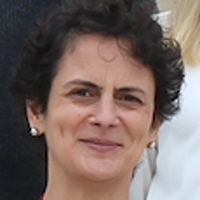 C Pereira is Biochemist (1991), Master in Cell Biology (1994) and received, in 2000, a PhD in Cell Biology, University of Coimbra (UC). Presently, she is Investigator with tenure at the Fac. Medicine, UC, and leads the research line “Endoplasmic reticulum (ER) stress response and ER-mitochondria axis” at CNC. She published > 80 peer-reviewed articles, mainly in Q1 journals. The scientific impact of her research is reflected in the high number of citations (>4000) and the H index (39).
C Pereira is Biochemist (1991), Master in Cell Biology (1994) and received, in 2000, a PhD in Cell Biology, University of Coimbra (UC). Presently, she is Investigator with tenure at the Fac. Medicine, UC, and leads the research line “Endoplasmic reticulum (ER) stress response and ER-mitochondria axis” at CNC. She published > 80 peer-reviewed articles, mainly in Q1 journals. The scientific impact of her research is reflected in the high number of citations (>4000) and the H index (39).
The mission of C Pereira research is to investigate the molecular basis of neuropsychiatric disorders associated with metabolic and inflammatory alterations, namely age-related neurodegenerative disorders, such as Alzheimer’s disease, and mood and psychotic disorders, such as bipolar disorder and schizophrenia, respectively, in order to identify potential applications in the diagnosis, prognosis and therapy. Using several disease models like cell lines and primary cell cultures and also sub-cellular fractions, control- versus patient-derived cells and transgenic mice, together with multiple experimental approaches including biochemistry, molecular and cellular biology, and animal behavior analysis, the group focus on the disease-associated deregulation of ER and mitochondria stress responses, and is also interested in understanding how disturbances of the ER-mitochondria axis under pathological conditions affect proteostasis, lipid and energetic metabolism, calcium homeostasis and inflammation. C Pereira’s studies can contribute to the development of novel therapies for the above diseases promoting human health and well-being.
 C Pereira is Biochemist (1991), Master in Cell Biology (1994) and received, in 2000, a PhD in Cell Biology, University of Coimbra (UC). Presently, she is Investigator with tenure at the Fac. Medicine, UC, and leads the research line “Endoplasmic reticulum (ER) stress response and ER-mitochondria axis” at CNC. She published > 80 peer-reviewed articles, mainly in Q1 journals. The scientific impact of her research is reflected in the high number of citations (>4000) and the H index (39).
C Pereira is Biochemist (1991), Master in Cell Biology (1994) and received, in 2000, a PhD in Cell Biology, University of Coimbra (UC). Presently, she is Investigator with tenure at the Fac. Medicine, UC, and leads the research line “Endoplasmic reticulum (ER) stress response and ER-mitochondria axis” at CNC. She published > 80 peer-reviewed articles, mainly in Q1 journals. The scientific impact of her research is reflected in the high number of citations (>4000) and the H index (39).
The mission of C Pereira research is to investigate the molecular basis of neuropsychiatric disorders associated with metabolic and inflammatory alterations, namely age-related neurodegenerative disorders, such as Alzheimer’s disease, and mood and psychotic disorders, such as bipolar disorder and schizophrenia, respectively, in order to identify potential applications in the diagnosis, prognosis and therapy. Using several disease models like cell lines and primary cell cultures and also sub-cellular fractions, control- versus patient-derived cells and transgenic mice, together with multiple experimental approaches including biochemistry, molecular and cellular biology, and animal behavior analysis, the group focus on the disease-associated deregulation of ER and mitochondria stress responses, and is also interested in understanding how disturbances of the ER-mitochondria axis under pathological conditions affect proteostasis, lipid and energetic metabolism, calcium homeostasis and inflammation. C Pereira’s studies can contribute to the development of novel therapies for the above diseases promoting human health and well-being.
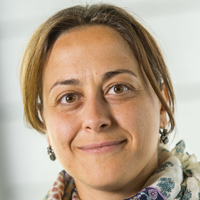 Professor Perocchi (b. 1977) conducts research at the interface of biology, medicine and computational biology. Her group integrates systems-level multi-omics strategies with traditional bottom-up biochemical, genetic and physiological approaches to discover and functionally characterize hitherto unknown molecular components of mitochondrial machineries and pathways. A central aspect of her long-term research goals is to understand how mitochondria can sense and integrate calcium-dependent signalling in a cell and tissue-specific manner in order to decipher mitochondrial-dependent pathomechanisms of neuro-metabolic diseases.
Professor Perocchi (b. 1977) conducts research at the interface of biology, medicine and computational biology. Her group integrates systems-level multi-omics strategies with traditional bottom-up biochemical, genetic and physiological approaches to discover and functionally characterize hitherto unknown molecular components of mitochondrial machineries and pathways. A central aspect of her long-term research goals is to understand how mitochondria can sense and integrate calcium-dependent signalling in a cell and tissue-specific manner in order to decipher mitochondrial-dependent pathomechanisms of neuro-metabolic diseases.
Professor Perocchi studied Biology in Rome, and then moved to Heidelberg where she completed a PhD in Functional Genomics at the European Molecular Biology Laboratory. In 2007, she joined the Department of Systems Biology at Harvard Medical School and Massachusetts General Hospital (USA) as a postdoctoral researcher, where she discovered the molecular components involved in mitochondrial calcium transport. After a short postdoc (2011-2012) at the Center for Genomic Regulation in Barcelona (Spain), she joined the Gene Center of the Ludwig-Maximilian University (LMU) as a Junior Group Leader of the Bavarian Research Network for Molecular Biosystems. In 2013 she was also appointed as Young Investigator Group Leader at the Helmholtz Munich, funded by the Emmy Noether Research Program. In 2018 she was appointed head of the Research Unit in Functional Genomics of Mitochondria at the Institute for Diabetes and Obesity of the Helmholtz Munich. Since 2021, she is an Associate Professor for Systems Biology of Metabolism at TUM School of Medicine.
 Professor Perocchi (b. 1977) conducts research at the interface of biology, medicine and computational biology. Her group integrates systems-level multi-omics strategies with traditional bottom-up biochemical, genetic and physiological approaches to discover and functionally characterize hitherto unknown molecular components of mitochondrial machineries and pathways. A central aspect of her long-term research goals is to understand how mitochondria can sense and integrate calcium-dependent signalling in a cell and tissue-specific manner in order to decipher mitochondrial-dependent pathomechanisms of neuro-metabolic diseases.
Professor Perocchi (b. 1977) conducts research at the interface of biology, medicine and computational biology. Her group integrates systems-level multi-omics strategies with traditional bottom-up biochemical, genetic and physiological approaches to discover and functionally characterize hitherto unknown molecular components of mitochondrial machineries and pathways. A central aspect of her long-term research goals is to understand how mitochondria can sense and integrate calcium-dependent signalling in a cell and tissue-specific manner in order to decipher mitochondrial-dependent pathomechanisms of neuro-metabolic diseases.
Professor Perocchi studied Biology in Rome, and then moved to Heidelberg where she completed a PhD in Functional Genomics at the European Molecular Biology Laboratory. In 2007, she joined the Department of Systems Biology at Harvard Medical School and Massachusetts General Hospital (USA) as a postdoctoral researcher, where she discovered the molecular components involved in mitochondrial calcium transport. After a short postdoc (2011-2012) at the Center for Genomic Regulation in Barcelona (Spain), she joined the Gene Center of the Ludwig-Maximilian University (LMU) as a Junior Group Leader of the Bavarian Research Network for Molecular Biosystems. In 2013 she was also appointed as Young Investigator Group Leader at the Helmholtz Munich, funded by the Emmy Noether Research Program. In 2018 she was appointed head of the Research Unit in Functional Genomics of Mitochondria at the Institute for Diabetes and Obesity of the Helmholtz Munich. Since 2021, she is an Associate Professor for Systems Biology of Metabolism at TUM School of Medicine.
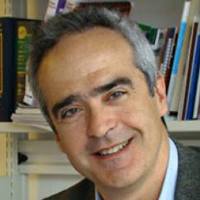 Prof. Rizzuto is Professor of General Pathology in the Medical School of the University of Padua.
Prof. Rizzuto is Professor of General Pathology in the Medical School of the University of Padua.
After acting as Director of the Department of Biomedical Sciences and Member of the Academic Senate, from 2015 to 2021 Prof. Rizzuto was the Rector of the University of Padua. In 2022 he coordinated the presentation of the proposal for the establishment of the National Center for Gene Therapy and Pharmacological Drugs (Mission 4, Component 2 of the PNRR MUR). After approval by the Ministry and funding with €320,036,606.03, Prof. Rizzuto was nominated President of the governing body (“Fondazione”) of the National Center.
Prof. Rizzuto received multiple awards, including the Chiara D'Onofrio award, the Biotec Award, the Theodor Bucher Medal and in 2014 the Antonio Feltrinelli Award from the Accademia dei Lincei. He served as a Chairman for three international congresses (12th International Symposium on Calcium Binding Proteins and Calcium Function in Health and Disease in 2002, EMBO Workshop on “Calcium signaling and diseases” in 2004 and the Gordon Research Conference on Calcium Signaling in 2011) and >300 invited talks at International conferences and research institutions. He is a member of the Academia Europaea and of the European Molecular Biology Organization (EMBO). He acts as a reviewer for numerous funding agencies (BBSRC, Wellcome Trust, UMDF, etc.) and top international journals (Nature, Science, Cell, etc.).
Prof. Rizzuto research is focused on cellular signals and in particular the mechanisms and pathological alterations of mitochondrial homeostasis of calcium ions. His activity was funded through the years by National and International agencies, such as European Research Council (Ideas Advanced "Mitocalcium" project), National Institute of Health (NIH), Italian Association for Cancer Research (AIRC), Telethon, Ministries of Education and Health and the Cariparo and Cariplo Foundations. He is the author of more than 300 publications in international journals listed by Pubmed (>47,000 citations; h-index 106, from Scopus).
 Prof. Rizzuto is Professor of General Pathology in the Medical School of the University of Padua.
Prof. Rizzuto is Professor of General Pathology in the Medical School of the University of Padua.
After acting as Director of the Department of Biomedical Sciences and Member of the Academic Senate, from 2015 to 2021 Prof. Rizzuto was the Rector of the University of Padua. In 2022 he coordinated the presentation of the proposal for the establishment of the National Center for Gene Therapy and Pharmacological Drugs (Mission 4, Component 2 of the PNRR MUR). After approval by the Ministry and funding with €320,036,606.03, Prof. Rizzuto was nominated President of the governing body (“Fondazione”) of the National Center.
Prof. Rizzuto received multiple awards, including the Chiara D'Onofrio award, the Biotec Award, the Theodor Bucher Medal and in 2014 the Antonio Feltrinelli Award from the Accademia dei Lincei. He served as a Chairman for three international congresses (12th International Symposium on Calcium Binding Proteins and Calcium Function in Health and Disease in 2002, EMBO Workshop on “Calcium signaling and diseases” in 2004 and the Gordon Research Conference on Calcium Signaling in 2011) and >300 invited talks at International conferences and research institutions. He is a member of the Academia Europaea and of the European Molecular Biology Organization (EMBO). He acts as a reviewer for numerous funding agencies (BBSRC, Wellcome Trust, UMDF, etc.) and top international journals (Nature, Science, Cell, etc.).
Prof. Rizzuto research is focused on cellular signals and in particular the mechanisms and pathological alterations of mitochondrial homeostasis of calcium ions. His activity was funded through the years by National and International agencies, such as European Research Council (Ideas Advanced "Mitocalcium" project), National Institute of Health (NIH), Italian Association for Cancer Research (AIRC), Telethon, Ministries of Education and Health and the Cariparo and Cariplo Foundations. He is the author of more than 300 publications in international journals listed by Pubmed (>47,000 citations; h-index 106, from Scopus).
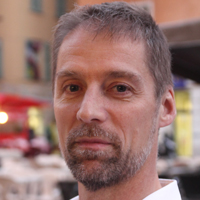 Guy Rutter is a Professor of Medicine at the University of Montreal and Principal Fellow at the CRCHUM in Montreal. He is also Professor of Cell Biology at Imperial College London and Visiting Professor at Nanyang Technological College, Singapore. His research focusses on diabetes mellitus, a condition which currently affects almost 10 % of the population worldwide, and specifically on the signalling pathways through which glucose, incretins and other hormones control insulin secretion from the pancreatic β cell. His research career began as a graduate student with Dick Denton FRS in the Department of Biochemistry at Bristol University U.K. fist established by Sir Philip Randle, examining the regulation of the then recently-discovered intramitochondrial Ca2+ sensitive dehydrogenases. In 1991 he won an MRC Travelling Fellowship to study under Claes Wollheim in Geneva, Switzerland, and with Rosario Rizzuto and Tullio Pozzan in Padua, where he demonstrated the importance of these enzymes in insulin secretion. He established his own laboratory at Bristol University in 1995, and moved to Imperial College London in 2006 to lead the Section of Cell Biology and Functional Genomics and later the Imperial Network of Excellence in Diabetes. He moved to Montreal in 2021 where his current interests include beta cell heterogeneity and mitochondrial dysfunction. He is a Wellcome Trust Investigator also funded by UKRI-MRC, CIHR, NIH, JDRF and Innovation Canada.
Guy Rutter is a Professor of Medicine at the University of Montreal and Principal Fellow at the CRCHUM in Montreal. He is also Professor of Cell Biology at Imperial College London and Visiting Professor at Nanyang Technological College, Singapore. His research focusses on diabetes mellitus, a condition which currently affects almost 10 % of the population worldwide, and specifically on the signalling pathways through which glucose, incretins and other hormones control insulin secretion from the pancreatic β cell. His research career began as a graduate student with Dick Denton FRS in the Department of Biochemistry at Bristol University U.K. fist established by Sir Philip Randle, examining the regulation of the then recently-discovered intramitochondrial Ca2+ sensitive dehydrogenases. In 1991 he won an MRC Travelling Fellowship to study under Claes Wollheim in Geneva, Switzerland, and with Rosario Rizzuto and Tullio Pozzan in Padua, where he demonstrated the importance of these enzymes in insulin secretion. He established his own laboratory at Bristol University in 1995, and moved to Imperial College London in 2006 to lead the Section of Cell Biology and Functional Genomics and later the Imperial Network of Excellence in Diabetes. He moved to Montreal in 2021 where his current interests include beta cell heterogeneity and mitochondrial dysfunction. He is a Wellcome Trust Investigator also funded by UKRI-MRC, CIHR, NIH, JDRF and Innovation Canada.
 Guy Rutter is a Professor of Medicine at the University of Montreal and Principal Fellow at the CRCHUM in Montreal. He is also Professor of Cell Biology at Imperial College London and Visiting Professor at Nanyang Technological College, Singapore. His research focusses on diabetes mellitus, a condition which currently affects almost 10 % of the population worldwide, and specifically on the signalling pathways through which glucose, incretins and other hormones control insulin secretion from the pancreatic β cell. His research career began as a graduate student with Dick Denton FRS in the Department of Biochemistry at Bristol University U.K. fist established by Sir Philip Randle, examining the regulation of the then recently-discovered intramitochondrial Ca2+ sensitive dehydrogenases. In 1991 he won an MRC Travelling Fellowship to study under Claes Wollheim in Geneva, Switzerland, and with Rosario Rizzuto and Tullio Pozzan in Padua, where he demonstrated the importance of these enzymes in insulin secretion. He established his own laboratory at Bristol University in 1995, and moved to Imperial College London in 2006 to lead the Section of Cell Biology and Functional Genomics and later the Imperial Network of Excellence in Diabetes. He moved to Montreal in 2021 where his current interests include beta cell heterogeneity and mitochondrial dysfunction. He is a Wellcome Trust Investigator also funded by UKRI-MRC, CIHR, NIH, JDRF and Innovation Canada.
Guy Rutter is a Professor of Medicine at the University of Montreal and Principal Fellow at the CRCHUM in Montreal. He is also Professor of Cell Biology at Imperial College London and Visiting Professor at Nanyang Technological College, Singapore. His research focusses on diabetes mellitus, a condition which currently affects almost 10 % of the population worldwide, and specifically on the signalling pathways through which glucose, incretins and other hormones control insulin secretion from the pancreatic β cell. His research career began as a graduate student with Dick Denton FRS in the Department of Biochemistry at Bristol University U.K. fist established by Sir Philip Randle, examining the regulation of the then recently-discovered intramitochondrial Ca2+ sensitive dehydrogenases. In 1991 he won an MRC Travelling Fellowship to study under Claes Wollheim in Geneva, Switzerland, and with Rosario Rizzuto and Tullio Pozzan in Padua, where he demonstrated the importance of these enzymes in insulin secretion. He established his own laboratory at Bristol University in 1995, and moved to Imperial College London in 2006 to lead the Section of Cell Biology and Functional Genomics and later the Imperial Network of Excellence in Diabetes. He moved to Montreal in 2021 where his current interests include beta cell heterogeneity and mitochondrial dysfunction. He is a Wellcome Trust Investigator also funded by UKRI-MRC, CIHR, NIH, JDRF and Innovation Canada.
 My research is focused on calcium homeostasis. The mitochondrial Na+/Ca2+ exchanger is a key player in mitochondrial and cellular calcium homeostasis but although its existence was documented 40 years ago its molecular identity remained unknown until now. By combining molecular silencing, ectopic expression, and dominant negative analysis with imaging of mitochondrial and cellular calcium levels, we have identified NCLX as the long-sought exchanger. This finding opened the door to molecular analysis of the mitochondrial Ca2+ transport machinery and interrogation of diverse physiological studies ranging from cardiac activity to insulin secretion neuronal activity and hepatic endocrine control which we are actively pursuing. We also interrogate the structure function and regulation of NCLX. We identified the regulatory domain of NCLX that controls mitochondrial Ca2+ signaling by phosphorylation and is sensing the mitochondrial membrane potential.
My research is focused on calcium homeostasis. The mitochondrial Na+/Ca2+ exchanger is a key player in mitochondrial and cellular calcium homeostasis but although its existence was documented 40 years ago its molecular identity remained unknown until now. By combining molecular silencing, ectopic expression, and dominant negative analysis with imaging of mitochondrial and cellular calcium levels, we have identified NCLX as the long-sought exchanger. This finding opened the door to molecular analysis of the mitochondrial Ca2+ transport machinery and interrogation of diverse physiological studies ranging from cardiac activity to insulin secretion neuronal activity and hepatic endocrine control which we are actively pursuing. We also interrogate the structure function and regulation of NCLX. We identified the regulatory domain of NCLX that controls mitochondrial Ca2+ signaling by phosphorylation and is sensing the mitochondrial membrane potential.
 My research is focused on calcium homeostasis. The mitochondrial Na+/Ca2+ exchanger is a key player in mitochondrial and cellular calcium homeostasis but although its existence was documented 40 years ago its molecular identity remained unknown until now. By combining molecular silencing, ectopic expression, and dominant negative analysis with imaging of mitochondrial and cellular calcium levels, we have identified NCLX as the long-sought exchanger. This finding opened the door to molecular analysis of the mitochondrial Ca2+ transport machinery and interrogation of diverse physiological studies ranging from cardiac activity to insulin secretion neuronal activity and hepatic endocrine control which we are actively pursuing. We also interrogate the structure function and regulation of NCLX. We identified the regulatory domain of NCLX that controls mitochondrial Ca2+ signaling by phosphorylation and is sensing the mitochondrial membrane potential.
My research is focused on calcium homeostasis. The mitochondrial Na+/Ca2+ exchanger is a key player in mitochondrial and cellular calcium homeostasis but although its existence was documented 40 years ago its molecular identity remained unknown until now. By combining molecular silencing, ectopic expression, and dominant negative analysis with imaging of mitochondrial and cellular calcium levels, we have identified NCLX as the long-sought exchanger. This finding opened the door to molecular analysis of the mitochondrial Ca2+ transport machinery and interrogation of diverse physiological studies ranging from cardiac activity to insulin secretion neuronal activity and hepatic endocrine control which we are actively pursuing. We also interrogate the structure function and regulation of NCLX. We identified the regulatory domain of NCLX that controls mitochondrial Ca2+ signaling by phosphorylation and is sensing the mitochondrial membrane potential.